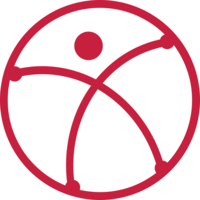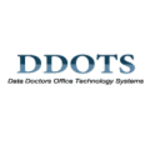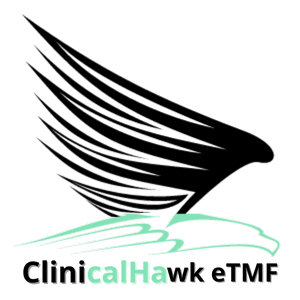Yes, most modern Clinical Trial Management Systems (CTMS) may be accessible from various devices and platforms. This includes desktop computers, laptops, tablets, and smartphones, as well as various operating systems including Windows, iOS, and Android. This provides easy access to critical trial information and updates for all team members, regardless of location or device preference. Before using your specific CTMS, make sure it is compatible with your devices and platforms.
List of 20 Best Clinical Trial Management System
Experience the game-changing power of Clinipace is a clinical trial software that transforms processes, delivers real-time data insights, and offers personalized support. By empowering researchers to foster innovation, Clinipace ensures efficient, ac...Read More Clinipace
DataFax, the top choice for clinical trial data management. Our software is designed to optimize processes, guarantee accuracy, and improve efficiency through tools for data collection, validation, and reporting. It is a solution trusted by research...Read More DataFax
Allegro - an advanced software that transforms clinical research procedures, promoting streamlined processes and adhering to regulations while enhancing productivity. Its extensive range of features includes data management, regulatory compliance, an...Read More Allegro
MATRIX EDC/IWRS- an innovative platform that transforms the way clinical trials are conducted. Developed to enhance precision and streamline data management, this cutting-edge solution revolutionizes traditional paper-based workflows. With real-time...Read More MATRIX EDC/IWRS
DocEngage Clinic Management, software to streamline the operations of your clinic or clinic chain. This user-friendly tool has been designed to comply with digital health regulations and can be easily used by all members of your team. With its extens...Read More DocEngage Clinic Management
Clinical Conductor CTMS - an all-inclusive clinical trial management solution crafted to simplify operations, ensure regulatory compliance, and improve data management for research sites, sponsors, and CROs. With its cutting-edge capabilities, it acc...Read More Clinical Conductor CTMS
Vineti - clinical trial management system focused on data security with role-based access and advanced analytics. Our platform is equipped with AI-driven behavioral analysis and tracks device usage for optimal trial management. Increase your ROI and...Read More Vineti
Clinsoft is an advanced software that revolutionizes healthcare data management. Its user-friendly interface and innovative tools offer seamless workflow optimization, while robust security features ensure compliance with ease. With Clinsoft, healthc...Read More Clinsoft
TrialKit is an innovative eClinical solution designed to streamline data collection and study management for clinical trials. Its user-friendly interface, customizable options, and seamless integration make it ideal for a wide range of study designs...Read More TrialKit
DFdiscover is an innovative software that has transformed the way data is managed in clinical trials. With its superior capabilities, it provides unparalleled accuracy and efficiency, elevating industry standards. By streamlining processes and boosti...Read More DFdiscover
CREDIT is a web-based solution for clinical trial management. Designed to streamline the oversight of trials, CREDIT offers a range of powerful features, such as an intuitive eRegulatory Binder, to enhance efficiency and organization. Say farewell to...Read More CREDIT
SyMetric C6 - IWRS, the advanced solution for clinical trials. This comprehensive platform streamlines data management, optimizes resource allocation, and reduces costs. With its ability to handle complex study protocols and effectively manage clinic...Read More SyMetric C6 - IWRS
Medidata CTMS is designed to simplify clinical trial management. Its centralized dashboard allows for personalized views and on-demand reporting, eliminating the need for manual data collection. This streamlines operations, saving time and resources...Read More Medidata CTMS
A software, HORIZON LIMS solution for streamlining data integration, real-time tracking, and comprehensive reporting in laboratories. Our efficient features, compliance assurance, and simplified workflows make HORIZON LIMS a must-have for modern labs...Read More HORIZON LIMS
Protocol Manager - software designed to enhance efficiency and streamline intricate processes. This advanced tool simplifies complex tasks and ensures smooth management of protocols, freeing up valuable time for users to focus on achieving optimal re...Read More Protocol Manager
EXPeRT eClinical solution for effortless clinical trial management. Designed with advanced data analytics and seamless integration capabilities, this platform streamlines the trial process for maximum efficiency and impressive results. Backed by cutt...Read More EXPeRT eClinical
ClinicalHawk eTMF, the budget-friendly electronic Trial Master File system that simplifies and streamlines the oversight process. With ClinicalHawk, youll have all the necessary tools to manage trial documents without the hassle of over-engineered pr...Read More ClinicalHawk eTMF
Popsipen: a leading Clinical and Digital Research Organization that offers superior clinical development services and IT solutions. Renowned for their agile methodology, streamlined processes, and budget-friendly tactics, Popsipen is the go-to choice...Read More Popsipen
g.BSanalyze, a research and development system designed by g.tec for neuroscience studies. This powerful tool utilizes a MATLAB-based platform with hardware and software components to facilitate data acquisition, real-time and offline analysis, data...Read More g.BSanalyze
BioClinica Express is a clinical data management software that provides valuable support to medical research firms in creating cutting-edge clinical methods and successful treatment options. Equipped with advanced features like drug and patient safet...Read More BioClinica Express
Learn More About Clinical Trial Management System
- What Is Clinical Trial Management System?
- What Are The Recent Trends In Clinical Trial Management Systems?
- Benefits Of Using Clinical Trial Management System
- Important Factors To Consider While Purchasing a Clinical Trial Management System?
- What Are The Key Features To Look For In a Clinical Trial Management System?
- Why Do Businesses Need Clinical Trial Management System?
- How Much Time Is Required To Implement a Clinical Trial Management System?
- What Is The Level Of Customization Available In Clinical Trial Management System?
- Which Industries Can Benefit The Most From Clinical Trial Management System?
- Conclusion
What Is Clinical Trial Management System?
A clinical trial management system (CTMS) is a software platform that automates and streamlines clinical trial operations. It acts as a central repository for all trial-related data and information, enabling parties such as researchers, sponsors, and regulatory bodies to interact and track progress.
CTMS allows for efficient trial management by including features including patient recruiting and enrollment monitoring, study visit scheduling, electronic data capture, and budget and resource management. It also provides real-time reporting and analytics to help make data-driven decisions. CTMS removes paper-based and manual chores by digitizing and integrating numerous trial procedures, which reduces human error and saves time and resources.
It also assures regulatory compliance by securely storing and organizing all trial records and data. Purchasing a CTMS can help firms conducting clinical trials by enhancing efficiency, lowering expenses, and improving accuracy and protocol compliance. It also enables improved communication and collaboration, resulting in speedier trial completion and the submission of accurate and reliable results.
What Are The Recent Trends In Clinical Trial Management Systems?
In recent years, Clinical Trial Management Systems (CTMS) have gained popularity in the pharmaceutical and healthcare industries. These systems are intended to help in the planning, tracking, and reporting of all parts of clinical trials, including patient recruitment and enrollment, data collection, and analysis. As technology advances, so do CTMS capabilities and features, making them an essential tool for efficient and successful clinical trial management.
One of the most significant changes in CTMS is the migration to cloud-based systems. Users can now use the system from any location with an internet connection, giving them greater flexibility and accessibility. Cloud-based CTMS also facilitates team cooperation because all members can work on the same platform and access real-time data.
Another trend in CTMS is the incorporation of AI and machine learning (ML) capabilities. These technologies can assist to streamline and automate some operations, like as patient screening and data processing, thereby saving time and decreasing human error. AI-powered CTMS can also provide insights and predictive analytics, enabling for more informed decisions throughout the trial process.
Mobile applications are also gaining popularity in the CTMS industry. These apps make it easier for clinical trial staff and subjects to enter and track data while on the go. The adoption of mobile apps can also promote patient engagement and compliance by allowing them to conveniently obtain study-related information and contact with their healthcare professionals.
Security and data privacy have long been high priorities in clinical research. With the implementation of the General Data Protection Regulation (GDPR) in the EU and the Health Insurance Portability and Accountability Act (HIPAA) in the United States, there is a greater emphasis on ensuring that CTMS adhere to these rules. As a result, many CTMS now include advanced security features like data encryption and user authentication to safeguard critical patient information.
Furthermore, many CTMS now include customisable and user-friendly interfaces, making it easier for users of diverse technical proficiency to understand and operate the system efficiently. This can save time and resources spent educating and onboarding new users.
Benefits Of Using Clinical Trial Management System
A clinical trial management system (CTMS) is a comprehensive software solution that helps pharmaceutical, biotechnology, and medical device businesses organize and manage their clinical trials effectively. This sophisticated tool provides a variety of advantages that can significantly increase the overall success of clinical trials.
we will look at the primary benefits of utilizing a CTMS and why it is such an important investment for any organization involved in clinical trials.
1. Enhanced Trial Efficiency: One of the most significant advantages of a CTMS is its capacity to increase the efficiency of clinical studies. The system enables the seamless integration and management of all trial-related processes, including subject recruiting, data collecting, monitoring, and reporting. This streamlines operations and eliminates the need for manual data entry, thereby saving time and eliminating errors.
2. Centralized Data Management: CTMS offers the centralized management of all trial-related data, such as patient records, study materials, and regulatory information. This not only increases data integrity, but also facilitates collaboration among team members, resulting in better decision-making and trial management.
3. Real-Time Monitoring And Reporting: A CTMS allows researchers to quickly monitor and follow the progress of their clinical studies in real-time. This real-time monitoring provides vital insights into the trial's success, enabling for early detection and resolution of problems. The system may also generate configurable reports, which provide a full overview of trial data and assist researchers in making educated decisions.
4. Regulatory Compliance: Regulatory compliance is essential in clinical studies. A CTMS has significant capabilities that help ensure that all regulatory requirements are followed, such as electronic recordkeeping, audit trails, and electronic signatures. These features save time, reduce risk, and assure compliance with applicable rules.
5. Cost Savings: Implementing a clinical trial management system (CTMS) can result in significant cost reductions. The technology helps to reduce operational expenses by optimizing workflows, minimizing manual data entry, and increasing overall efficiency. It also reduces the possibility of errors, which may be expensive and time-consuming to fix.
6. Improved Study Quality: The integrity and dependability of clinical trial data are critical to the success of any study. A CTMS increases data accuracy and consistency by reducing manual data entry and human error. This enables the generation of high-quality data, resulting in more accurate and dependable findings.
Important Factors To Consider While Purchasing a Clinical Trial Management System?
When selecting a Clinical Trial Management System (CTMS) for your firm, you need carefully consider several elements to ensure that you make an informed purchasing decision. A CTMS is an essential tool for managing and tracking clinical trials, and investing in the proper system can have a significant impact on trial success and, ultimately, organizational success.
1. Features And Functionality: The first step in selecting a CTMS is to determine what precise features and functionality you require. Consider the scale and complexity of your trials, and ensure that the system has critical features such as patient recruiting, data gathering, and reporting capabilities. It is critical to select a system that meets your organization's demands and ambitions.
2. Usability: A CTMS should be user-friendly because it will be utilized by a variety of stakeholders, including managers, researchers, and coordinators. Look for a system that is simple and straightforward to use, saving time and lowering the chance of user error. A demo or trial time is useful in determining the usability of a CTMS.
3. Customizability: Because each organization has distinct procedures and workflows, it is critical to select a CTMS that can be tailored to your individual requirements. This will ensure a more seamless integration with existing systems and procedures, reducing disturbance to your current operations. 4. Data Security: Given the sensitivity of clinical trial data, it is critical to choose a system that protects data security and confidentiality. Look for a CTMS that supports data encryption, access restrictions, and regulatory compliance, such as HIPAA and GDPR.
5. Scalability: As your organization expands and conducts additional trials, it is critical to have a CTMS that can scale to meet your demands. Consider scalability and future-proof your investment by selecting a solution that can grow with your firm.
6. Integration: A CTMS should be able to communicate with other systems, such as EDC and EHR. This enables seamless data transfer and removes the need for manual data entry, lowering the possibility of errors and saving time.
7. Technical Assistance: When choosing a CTMS, examine the quality of technical assistance given by the vendor. A system with 24-hour assistance and a dependable customer service team will guarantee that any issues or inquiries are resolved quickly, minimizing delays to your clinical trials.
What Are The Key Features To Look For In a Clinical Trial Management System?
When choosing a Clinical Trial Management System (CTMS) for your firm, there are several critical elements to look for to guarantee that your clinical trials are managed efficiently and effectively. These features include the following:
1. Study And Site Management: A competent CTMS should be capable of managing all parts of your studies, including tracking protocols, subject enrollment, and site performance. It should also facilitate communication and coordination with research sites.
2. Regulatory Compliance: Adherence to regulatory standards is critical throughout the clinical trial procedure. Look for a CTMS that includes compliance checks and audit trails, as well as the capacity to accept electronic submissions to regulatory authorities.
3. Data Management: Collecting, organizing, and storing data is critical in clinical studies. To ensure accurate and dependable data management, look for a CTMS that includes capabilities like data integration, validation, and security.
4. Budget And Contract Management: A decent CTMS should have capabilities that allow you to track study budgets, site payments, and manage contracts. This will aid in financial management and ensure timely payments to research sites.
5. Reporting And Analytics: Data is only valuable if it can be evaluated and presented in an understandable manner. Look for a CTMS that provides configurable reporting and analytics, so you can easily track research progress and spot any difficulties.
6. User-Friendly Interface: When choosing a CTMS, evaluate how easy it will be to use and adopt by your study team. Look for a system that is simple to use and provides training and assistance to users.
7. Integration With Other Systems: Many businesses already have systems in place for data management, budgeting, and reporting. Look for a CTMS that integrates with these systems, which eliminates the need for duplicate data entry and boosts efficiency.
8. Mobile Access: In today's fast-paced environment, having the ability to access key information while on the go is essential. Look for a CTMS that is mobile-compatible, allowing study teams to access and update data from anywhere, at any time. When comparing CTMS solutions, keep these qualities in mind to help you select the best system for your organization's needs and ensure efficient clinical trial management.
Why Do Businesses Need Clinical Trial Management System?
Businesses require a Clinical Trial Management System (CTMS) to properly organize and streamline their clinical trials. This critical software solution enables firms to efficiently plan and organize their trials, track essential data, and maintain regulatory compliance. One of the most major benefits of a CTMS is its ability to concentrate all trial-related data in a secure and easily accessible system.
This eliminates the need for many spreadsheets, papers, and emails, all of which are error-prone and time-consuming to manage. A CTMS allows firms to quickly collect and view data while also collaborating with all stakeholders, providing transparency and accountability throughout the trial process. Furthermore, a CTMS automates numerous laborious and repetitive procedures, reducing the risk of human mistake and freeing up crucial time for researchers and personnel.
It enables efficient tracking of study participants, work scheduling, budget management, and report generation, so minimizing administrative stress and enhancing efficiency. Furthermore, CTMS enables firms to meet regulatory standards and best practices. It allows enterprises to keep precise and extensive audit trails, ensuring compliance with data privacy and protection standards like HIPAA and GDPR.
This not only protects businesses from penalties and legal implications, but it also fosters trust among participants and other stakeholders. Another key advantage of a CTMS is its capacity to deliver real-time data insights. This allows organizations to make more informed decisions, identify potential concerns or dangers, and respond rapidly to changes in the trial process.
This improves the overall quality and efficiency of the trial, resulting in faster approvals and commercialization. In conclusion, organizations require a CTMS to efficiently and effectively manage clinical trials, improve data accuracy and compliance, increase efficiency, and make educated decisions. Organizations may streamline their trial procedures and achieve effective results by using the correct CTMS.
How Much Time Is Required To Implement a Clinical Trial Management System?
The time required to establish a Clinical Trial Management System (CTMS) varies based on a number of factors, including the system's complexity, the size of the company, and the level of customization necessary. On average, the implementation process takes three to six months. However, depending on the organization's specific demands and goals, this timetable may be much longer or shorter.
The first step in developing a CTMS is to thoroughly assess the organization's present procedures and workflows. This is critical in determining which areas need to be streamlined and how the CTMS might be customized to match the organization's specific requirements. This stage can last 4 to 8 weeks, depending on the size of the company and the complexity of the procedures.
Following the analytical phase, the implementation process begins, which includes configuring the CTMS software, creating user accounts and permissions, and integrating the system with existing databases and applications. This step can take anywhere between 8 and 12 weeks, depending on the complexity and personalization necessary.
Once the system has been designed and integrated, comprehensive testing and validation are performed to guarantee that the CTMS is operational and meets the needs of the company. This phase can last up to 6 weeks, and any flaws discovered during testing are resolved prior to the system's full rollout. Following the testing and validation phase, training and user adoption occur.
This is an important step in the implementation process since it guarantees that all users are comfortable and proficient with the new system. Training might take between two and four weeks, depending on the size of the business.
What Is The Level Of Customization Available In Clinical Trial Management System?
When selecting a Clinical Trial Management System (CTMS) for your firm, it is critical to understand the level of customisation available. This ensures that the system fulfills your individual needs and expectations, resulting in a worthwhile investment for your clinical studies. CTMS customization levels vary based on the vendor and the system's individual features and functionalities.
However, most CTMS solutions provide a high level of customisation to meet the specific demands of each enterprise. First and foremost, the user interface of a CTMS may frequently be tailored to match your organization's branding and visual style. This not only creates a consistent look and feel, but also makes users feel more at ease and familiar with the system.
Additionally, the structure and navigation can be tailored to the individual roles and responsibilities of different users within your organization. When it comes to functionality, many CTMS solutions have a variety of customizable features and modules that may be adjusted to your individual requirements. This includes the option to add or remove features, adjust workflows, and personalize data capture sections in order to collect the most relevant data for your organization's specific trials.
Furthermore, the reporting and analytics capabilities of a CTMS can be tailored to deliver insights and data that are particular to your organization's reporting needs and requirements. This enables more streamlined and efficient examination of trial data, resulting in faster decision-making and better trial management.
It is crucial to remember that the level of customisation provided may vary depending on the pricing package selected. Some manufacturers may offer additional customization possibilities in higher-priced packages, but others may provide the same level of personalization across all pricing tiers.
Which Industries Can Benefit The Most From Clinical Trial Management System?
Clinical Trial Management Systems (CTMS) are vital tools for any industry that conducts clinical trials. These technologies help to streamline and automate the process of organizing, conducting, and managing clinical trials, resulting in more efficient and successful research. While any industry conducting clinical trials can benefit from deploying a CTMS, some may find it more advantageous than others. The following industries can gain the most from utilizing a CTMS:
1. Pharmaceutical businesses: Pharmaceutical businesses are at the forefront of the clinical trial process and hence benefit the most from a CTMS. These companies can utilize a CTMS to manage many trials at once, track patient recruitment and retention, monitor data quality, and maintain regulatory compliance.
2. Biotechnology firms: Biotechnology firms rely significantly on clinical trials to develop and test new goods and treatments. These firms can use a CTMS to manage their research data more efficiently and enhance communication across departments such as clinical operations and data administration.
3. Contract Research Organizations (CROs): CROs assist pharmaceutical and biotechnology businesses with clinical trials, making them an essential component of the research process. A CTMS can assist CROs in managing and tracking several clinical trials for varied clients, resulting in accurate and timely data reporting.
4. Academic and research organizations frequently conduct clinical trials to increase medical understanding and create new medicines. A CTMS can help these organizations manage vast amounts of data while adhering to ethical and regulatory guidelines.
5. Medical Device firms: Before introducing new medical equipment to the market, firms conduct clinical trials to ensure their safety and effectiveness. A CTMS can assist these organizations track and manage device trials, improve communication with investigational sites, and assure regulatory compliance. Finally, every industry that conducts clinical trials can benefit from adopting a CTMS. A CTMS can save important time and resources by automating and streamlining the research process, as well as improving data accuracy and compliance, resulting in faster and more efficient product development.
Conclusion
To summarize, investing in a Clinical Trial Management System (CTMS) can significantly benefit your research organization by streamlining operations, improving data accuracy, and increasing overall efficiency. With so many options available on the market, it is critical to evaluate your personal requirements and budget before making a purchase.
When selecting a CTMS, prioritize capabilities such as study management, data tracking and reporting, regulatory compliance, and integration with other systems. It is also critical to assess the vendor's reputation, customer service, and security protocols. Furthermore, be sure that the CTMS you chose is user-friendly and easily adaptable to your current operations.
Conducting extensive research and asking demonstrations or trials will help you make an informed selection. Finally, investing in the correct CTMS can help increase the success of your clinical trials while also saving you time and money in the long term. Keep in mind the major elements highlighted in this article while choosing a dependable and effective CTMS that matches your individual needs.
Clinical Trial Management System FAQ's
Can Clinical Trial Management System Be Accessed Across Multiple Devices And Platforms?
Is Clinical Trial Management System Future-Proof and Adaptable To Emerging Technologies Like Ai, Blockchain or Iot?
Yes, a modern Clinical Trial Management System (CTMS) is intended to be future-proof and adaptable to new technologies like as artificial intelligence (AI), blockchain, and IoT. A CTMS may readily combine sophisticated capabilities like automation, data analytics, and cloud computing to optimize clinical trial processes, increase productivity, and improve data security. Furthermore, with continual upgrades and enhancements, CTMS can continue to evolve and keep up with the ever-changing environment of healthcare technology.
Is There A Free Trial Offered To Assess The Clinical Trial Management System Before Committing?
Yes, some Clinical Trial Management System suppliers provide a free trial period so that interested users can evaluate the system before committing. This enables them to grasp the system's features and functionalities and assess whether they match their requirements and needs. Free trials allow consumers to gain hands-on experience, which helps them make an informed decision about investing in the system. Contact your preferred provider to learn about their free trial policy.
Does Clinical Trial Management System Offer Data Security Features And Meet Regulatory Compliance Standards?
Yes, a dependable Clinical Trial Management System (CTMS) has strong data security features and is built to satisfy regulatory compliance criteria in order to protect confidential and sensitive information of patients, trial participants, and research data. These systems protect data integrity, confidentiality, and availability by encryption, access controls, and regular audits. They also comply with standards such as HIPAA, GDPR, and 21 CFR Part 11, making them an excellent alternative for clinical studies.
Can Clinical Trial Management System Integrate Seamlessly With Existing Tools And Platforms?
Yes, a well-designed Clinical Trial Management System (CTMS) can work smoothly with existing tools and platforms including Electronic Data Capture (EDC) systems and Electronic Health Records (EHRs). This integration enables more efficient data management, higher data accuracy, and improved communication between systems. CTMS also integrates with analytic tools, making all data easily accessible for analysis and reporting. This integration has the potential to dramatically increase the effectiveness and productivity of clinical studies.






















